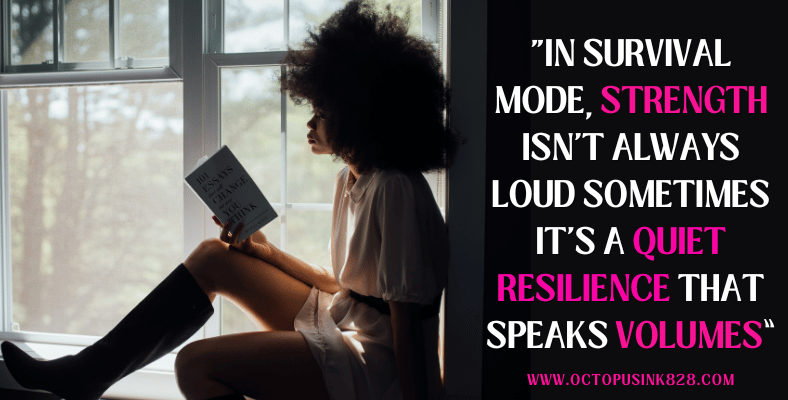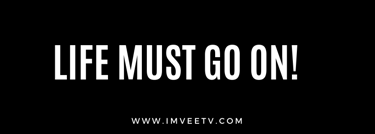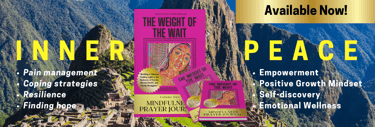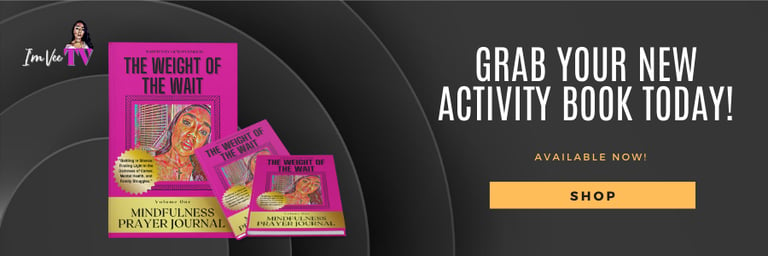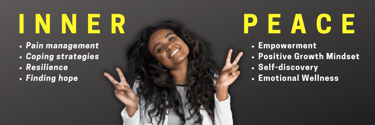Finding Light in Emotional Darkness: Survival Mode
You know those times when life gets super overwhelming? That's when our brains switch to something called Survival Mode. It's like having a mental superhero cape that kicks in when things get tough. Imagine it as entering a real-life chess match, where every move you make is super important. Survival Mode is basically your brain's way of helping you deal with stress, but the funny thing is, it can make us less aware of how we're feeling.
What is Survival Mode? A Closer Look...
You know those times when life gets super overwhelming? That's when our brains switch to something called Survival Mode. It's like having a mental superhero cape that kicks in when things get tough.
Imagine it as entering a real-life chess match, where every move you make is super important. Survival Mode is basically your brain's way of helping you deal with stress, but the funny thing is, it can make us less aware of how we're feeling.
In Survival Mode, it's as if your brain hits the fast-forward button, and suddenly, you're all about just getting through the day without really checking in on how you're doing. You might feel a bit rushed, a tad more anxious, and really wanting to shield yourself from whatever's causing you stress.
Survival mode is a psychological and physiological response to adversity. It is a state where our focus shifts to immediate survival needs, and our emotional well-being may take a backseat.
In survival mode, our bodies release stress hormones, and our minds become hyper-focused on finding solutions and staying safe. While survival mode can be helpful in short-term crises, it is crucial to find ways to transition out of it and prioritize our emotional well-being.
Emotional Turmoil: Defining the Unsettled State
Emotional turmoil is like being on a wild emotional ride where things inside us are constantly shifting and changing like the weather. It's when we feel really strong emotions, like being super sad, angry, scared, or just totally confused. When we're in this emotional whirlwind, finding a calm and peaceful state within ourselves becomes pretty tricky.
But guess what? You're not alone in this journey. We all face the challenge of discovering that inner calm amidst the turbulence. So, buckle up for the ride, knowing that understanding and embracing these emotional waves is the first step to finding your own oasis within the storm.
Emotional Self-Care for Black Women: Nurturing the Soul
Emotional self-care is a vital practice for everyone, but it holds particular significance for black women who often face unique challenges. Did you know? Recent studies highlight a powerful narrative about Black women and self-care that demands our attention.
Black women showcase incredible love, strength, wisdom, and resilience. However, according to studies we also battle with stressors, from societal pressures to systemic inequalities. To explain this in simple life terms “All My Life I Had To Fight”.
The game-changer? Taking intentional care of ourselves is a game-changer. Studies consistently show that when we make a conscious effort to look after our emotional and mental well-being, it makes a significant positive impact. It's not just something good to do; it's a must-do for navigating life's complexities.
Join me as we uncover practical strategies and engaging mindfulness activities designed to empower, uplift, and revolutionize the concept of self-care for Black women.
Understanding Emotional Intelligence: The Power Within
Emotional Intelligence (EI) is the ability to recognize, understand, and manage both your own emotions and the emotions of others. It involves being aware of how emotions impact your thoughts and actions, as well as recognizing and empathizing with the emotions of those around you.
Here are some key components of Emotional Intelligence:
Self-awareness: Recognizing and understanding your own emotions, including how they affect your behavior and decisions.
Self-regulation: Managing and controlling your emotions effectively, especially in challenging situations. This involves staying calm under pressure, controlling impulsive reactions, and adapting to changing circumstances.
Motivation: Being driven to achieve goals and being able to bounce back from setbacks. Motivated individuals with high EI are often more resilient and persistent.
Empathy: Understanding and sharing the feelings of others. This involves being able to see things from someone else's perspective and responding with compassion.
Social skills: Building and maintaining positive relationships with others. This includes effective communication, conflict resolution, and collaboration.
Emotional Intelligence is a valuable skill in personal and professional life. Individuals with high EI are often better at navigating social situations, managing stress, and fostering positive relationships.
Developing emotional intelligence involves self-reflection, active listening, and a willingness to understand and connect with others on an emotional level.
Examples of the Exhaustion Stage: When Survival Becomes Overwhelming
Emotional Intelligence is a valuable skill in personal and professional life. Individuals with high EI are often better at navigating social situations, managing stress, and fostering positive relationships.
Developing emotional intelligence involves self-reflection, active listening, and a willingness to understand and connect with others on an emotional level.
The Exhaustion Stage, also known as the burnout phase, occurs when the challenges and stressors of survival become overwhelming, taking a toll on an individual's physical and mental well-being.
During this stage, the ongoing stress begins to show its impact over time, making it much harder to deal with.
Here are a few examples to help you spot when you're in the Exhaustion Stage:
Physical Fatigue: Persistent and extreme tiredness that goes beyond normal fatigue, impacting the ability to carry out daily activities.
Emotional Drain: Feeling emotionally depleted, experiencing heightened irritability, mood swings, and a sense of hopelessness.
Cognitive Decline: Difficulty concentrating, memory lapses, and reduced cognitive functioning due to the ongoing stress load.
Decreased Performance: A decline in overall performance, both at work or in personal responsibilities, as the energy to meet demands diminishes.
Health Issues: Increased susceptibility to physical ailments, such as headaches, stomach problems, and a weakened immune system.
Withdrawal and Isolation: A tendency to withdraw from social interactions and a desire to be alone due to the exhaustion of dealing with external stressors.
Loss of Motivation: Feeling disheartened and experiencing a significant loss of motivation and enthusiasm for activities that were once enjoyable.
Sleep Disturbances: Disrupted sleep patterns, including difficulties falling asleep, staying asleep, or experiencing restful sleep
Regnizing these signs is crucial, as it indicates that the stress has reached a point where it is impacting various aspects of one's life. Seeking support, whether from friends, family, or professionals, becomes essential to navigate through and recover from the Exhaustion Stage.
Survival Games: Navigating Life's Challenges
Picture this: Life, your very own game, complete with highs, lows, and unexpected plot twists. Sounds familiar, right? It's like we're all in this grand adventure, trying to figure out the rules as we go along. Now, imagine "The Weight of the Wait' book series as your personalized game guide for emotional survival.
Life's challenges aren't obstacles to avoid but levels to conquer, and each book in the series is like your secret map, guiding you through the maze. Resilience becomes your strength, and adaptability your trusty tool in this emotional survival game.
'The Weight of the Wait' transforms the journey of overcoming emotional hurdles into an interactive game. It's not about avoiding challenges but learning how to navigate them with wisdom and strategies. Each page turned is like unlocking a new skill, helping you face the complexities of life head-on.
So, here's to embracing the reality of life's challenges and turning them into opportunities for growth. The 'Weight of the Wait' series is not just a collection of books; it's your toolkit for mastering the emotional survival game. Get ready to play, strategize, and level up in the grand adventure of your own life.
Mindful Resilience: Surviving and Thriving with 'Weight of the Wait
Life often presents challenges that feel like a heavy burden on our shoulders. If you've experienced those moments of struggle, I discovered this mindful practice that literally transformed my life.
I went through a storm in my life that had me in a dark place filled with tears, sadness, hurt, disappointment, struggle, frustration, pain, and all the other emotions that come along with depression.
Through my trials I had no choice but to depend on God, my anchor, my strength, my peacemaker, my comforter, my friend. Having a healthy relationship with God helped me to hold on giving me the strength I needed to remain resilient.
The practice that became my lifeline? Mindfulness journaling. It literally has been “paper medicine” for me. Let me introduce you to this mindfulness self help book series that I created to help me navigate life’s ups and downs, it's like having a comforting friend offering wisdom and support.
This is a mindfulness book series titled “The Weight Of The Wait” Filled with silent narratives that resonate with the challenges we all face. “The Weight Of The Wait” is a mindfulness activity book series designed as a stress relief tool to help you navigate the struggles of life. Its filled with fun, interactive mindful activities, and helpful strategies to help you overcome trauma and begin to heal.
Remember, life isn't about dwelling on things beyond our control. Through prayer, fasting, obedience to God's Word, and unwavering faith, we can find strength. As the scripture says, "Trust in the Lord with all your heart and lean not on your own understanding; in all your ways submit to him, and he will make your paths straight" (Proverbs 3:5-6).
So, my friend, if you're ready to embark on a GROWTH MINDSET, join us on our wellness journey. Lets navigate life's challenges together, finding strength, wisdom, and healing along the way.

